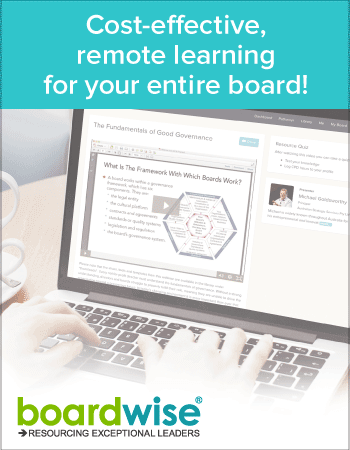leadership
Why External Coaching for Your Executives is Critical
Published: December 16, 2017
Read Time: 5 minutes

There are very few safe harbours in the world these days and for the isolated CEO or executive carrying all the pressure, providing them with one will make a significant difference to their performance and longevity, and through them, the organisation.
It doesn’t matter how smart, insightful or even self-aware you are, getting a quality, external perspective helps. Someone to help sort the important from the urgent, who doesn’t have a vested interest in anything other than your success.
Even the best of the best (like Richard Branson and Bill Gates) rely on others who complement their skills, who offer honesty where others wouldn’t (for fear of impacting their own position), and who offer a sounding board that safely challenges thinking and comfort zones.
Key Points:
- It’s lonely at the top.
- CEOs have busy brains, with multiple conflicting priorities.
- It is logically and physically impossible to be objective from within the system.
- Get yourself a sounding board.
Getting external executive coaching support is not an admission of doubt or a weakness, rather evidence of maturity, intelligence and rationality. This is especially so during times of rapid and continuous change. This operational disruption keeps people internally focussed, myopic and reactive.
Organisations and businesses have boards because having several people with different perspective, expertise and experience, forming a view on a matter and contributing knowledge, helps reduce risk and make better decisions. We also engage auditors to reduce risk in critical areas – except, strangely, our most expensive personnel.
The CEO is often isolated; stuck between the top down strategic expectations of the board and the bottom-up divisional and operational imperatives of the executive team and broader leadership.
Theirs is also the busiest mind in the place with many, often conflicting, priorities. They ‘own’ and feel responsibility for the success of the business. They are after all the boss; delegated with the authority to implement strategy and reduce risk. The executive team, who all have career aspirations of their own, often look at the CEO as part mentor and part obstacle.
The CEO must also be respectful of the board’s position. It isn’t a good look to bring a myriad of problems to the board. CEOs are supposed to bring solutions. It’s what they are paid for and what the board expects.
CEOs rarely say, “I’m stressed and could use some external support.”
So, without a safe harbour above or below, what happens? They become increasingly isolated. They are awake, at three o’clock in the morning, worrying about random business problems, key decisions and plans. Their mind is full and stress creeps-up. The stress and isolation has a predictable impact on performance. They, and therefore the organisation, becomes short-sighted, close-minded, inflexible, defensive, with impaired problem-solving ability, and a lack of big picture strategic perspective.
Let’s not forget, these are resourceful people. You don’t become CEO without being a good problem solver. So, they go to what they know and try to solve the challenges of self-management, stress management, and mental well-being for themselves.
However, working on improving a system (their mind) from a perspective that is wholly within the system is very difficult. Professional sport has coaches, because no matter how good you are, there are things you can only see from the perspective of the grandstand. External perspectives are valuable, precisely because they are not actually in the game.
The board provides that to a degree, but they are obliged to do what is best for the organisation. The CEO needs, from a corporate governance perspective, to stay at arm’s length of individual board members; minimising selective confidences or asymmetric information.
It is difficult for a CEO to be vulnerable and express doubt, stress or fear to the board; whose task is to reduce risk (including ‘key person risk’) in the organisation. It is understandable, in such cases, for the CEO to fear that the board may start casting an eye toward the next CEO; one “who can handle it”.
However, from the perspective of your own mind, some problems are simply unresolvable. Even the most resourceful, insightful and intelligent leaders benefit from being able to share their thinking with a trusted sounding board.
This is not just some observation, it is mathematically proven. In the early 1900s, the world of mathematics was full of pride and confidence. David Hilbert presented 23 key unresolved problems in mathematics with the imperative “we must know, we will know”. Then along comes a young Kurt Gödel, who annoyingly proved that it is impossible to completely understand any system from within the system you are trying to define.
A couple of decades later, Alan Turing proved that not only can you not know everything, you cannot even know in advance which problems are solvable at all, or how long they will take to solve.
Having coached many executives, I find that while I’m usually engaged to help them dial down stress and improve their self-awareness and leadership, the coaching tends to shift. I become a confidential sounding board for ideas that are not quite ready for the board, for project troubleshooting, to air stressors and fears, or to confidentially discuss other key people and how to get the best out of them.
The benefit they get from simply being in a room with a whiteboard and a skilled, trusted, interested but external (i.e., outside the system) resource is enormous.
If you’re a CEO, think about getting external support for yourself and/or your executive team.
If you’re on the board and can see your CEO or key people are under the pump and want to support your most expensive and leveraged human resource, encourage them to get some external personal leadership support. They may not want to, but if you can see stress in them where they do not, it is probably worth being a little pushy.
This article was first published in the Better Boards Conference Magazine 2017
Share this Article
Recommended Reading
Recommended Viewing
Author
-
Executive Coach
Donovan Ataraxy
- About
-
Nigel Donovan is an executive leadership coach with extensive experience in the NFP space. Both as the Chairman of the Board and working with senior Executive teams.
Nigel helps senior people in complex, high change & high pressure environments, reduce their experience of stress, overwhelm and mental fatigue through the practical application of neuroscience. He provides you with the knowledge, skills and support to change your experience of life.
Found this article useful or informative?
Join 5,000+ not-for-profit & for-purpose directors receiving the latest insights on governance and leadership.
Receive a free e-book on improving your board decisions when you subscribe.
Unsubscribe anytime. We care about your privacy - read our Privacy Policy .










